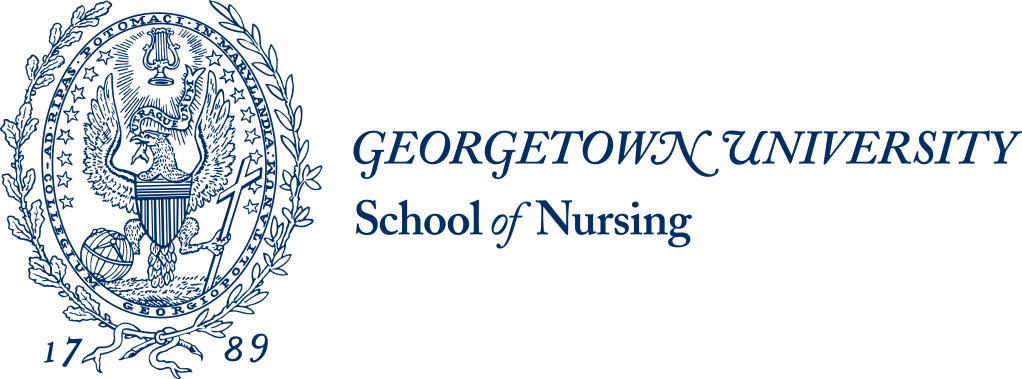The Future of Nursing Is in Your Hands
Take the Lead as an Advanced Practice Nurse
Featured CCNE-Accredited Online Nursing Programs
The COVID-19 pandemic has permanently reshaped the way we approach health care in the U.S. — and the future of nursing depends on leaders like you.
When you earn your Master of Science in Nursing (MSN) or Doctor of Nursing Practice (DNP), you can achieve greater autonomy in your career, provide a higher level of care for your patients and leave your mark on the health system as an advanced practice registered nurse (APRN).
GRE scores are not required to apply to any of the programs featured.
MSN or DNP: Which Path Is Right for You?
When pursuing an online graduate nursing degree, you can choose from two options.
Master of Science in Nursing (MSN)
An MSN is a graduate degree to become an APRN across a broad array of specialties. APRNs are able to lead patient care and prescribe medications.
Doctor of Nursing Practice (DNP)
A DNP degree is the highest level of education in the nursing field and prepares nurses for leadership roles within their health care organizations.

Simmons University offers both online MSN and Post-MSN DNP options for aspiring nursing leaders, with two MSN pathways to choose from.
MSN
Simmons offers two online MSN programs for aspiring family nurse practitioners (FNPs): the MSN — FNP for RNs with a bachelor’s degree and the RN to MSN — FNP for RNs without a bachelor’s degree, but who hold either an associate degree or a diploma or certificate from a hospital-based program.
- Time to complete: 24–32 months (MSN — FNP); 32–44 months (RN to MSN — FNP); full-time, part-time and extended options available
- Credits: 48–68
- Clinical hours: 672–836
- Campus visits: One 3-day immersion weekend in Boston
DNP
Simmons’ online DNP program is designed for board-certified APRNs who have earned their MSN. The curriculum integrates evidence-based practice with strong analytical and leadership principles to prepare nurses for the highest level of professional nursing practice.
- Time to complete: 27 months on a part-time basis
- Credits: 30
- Clinical hours: 1,000
- Campus visits: One 3-day immersion weekend in Boston

The Georgetown University School of Nursing (GUSON) offers four APRN specializations, with MS in Nursing and DNP program options for each: Adult Gerontology Acute Care Nurse Practitioner (AG-ACNP), Family Nurse Practitioner (FNP), Nurse-Midwifery/Women’s Health Nurse Practitioner (NM/WHNP), and Women’s Health Nurse Practitioner (WHNP).
MSN
Georgetown University’s online MS in Nursing is offered on a part-time or full-time basis, with total amount of time varying, based on chosen specialty. BSN required to apply.
- Time to complete: As few as 23 months
- Credits: 40–49
- Clinical hours: 600–1,000
- Campus visits: 2–3 on-campus intensives in Washington, DC
DNP
Georgetown University’s online DNP offers two entry points: the BSN to DNP, designed for RNs with a BSN, and the Post-Master’s DNP, designed for APRNs with a master’s degree.
- Time to complete: 33 months full time (BSN to DNP); 20 months part time (Post-Master’s DNP)
- Credits: 69–74 (BSN to DNP); 30 (Post-Master’s DNP)
- Clinical hours: 1,000–1,200 (BSN to DNP); 300+ (Post-Master’s DNP)
- Campus visits: 2–3 on-campus intensives (BSN to DNP); 2 on-campus executive sessions (Post-Master’s DNP)

Become a Future-Focused Nurse
#2
Fastest-Growing Job in the U.S.1
45%
Projected Job Growth From 2019–2029 (more than 11 times the national average)2
In addition to an unprecedented demand for APRNs, the COVID-19 pandemic has led to a surge in telehealth that may indicate what the future of health care delivery will look like.
By earning your MSN online, you will get a head start on confidently and effectively communicating online, so you can meet your future patients where they are without obstacle.
1 Bureau of Labor Statistics (Sept. 1, 2020). Occupational Outlook Handbook: Fastest Growing Occupations. Retrieved Oct. 19, 2020. arrow_upwardReturn to footnote reference
2 Bureau of Labor Statistics (Sept. 1, 2020). Occupational Outlook Handbook: Nurse Practitioners. Retrieved Oct. 19, 2020. Return to footnote referencearrow_upwardReturn to footnote reference


